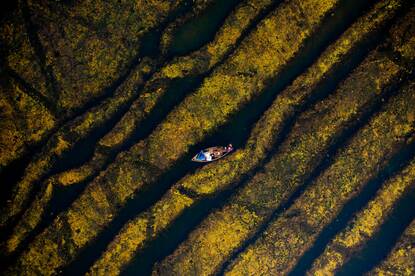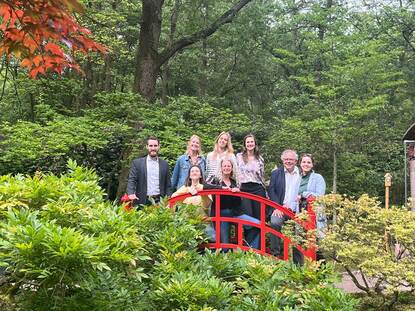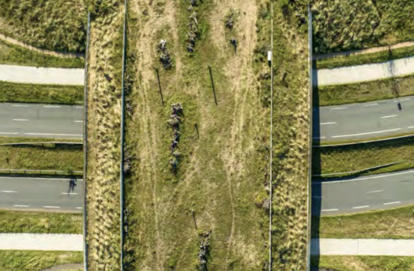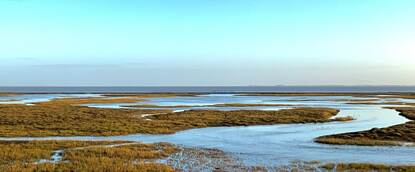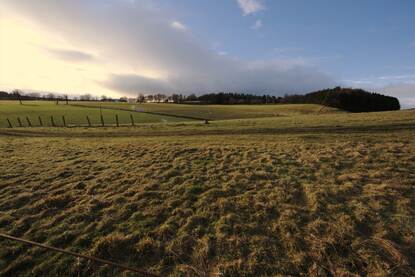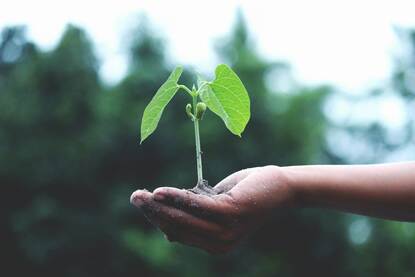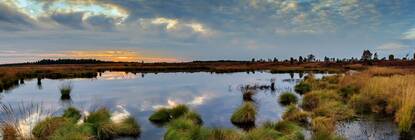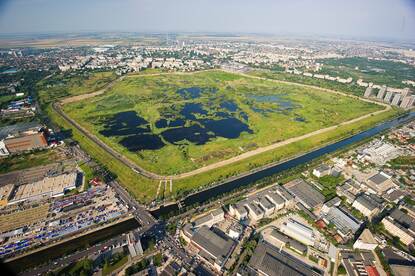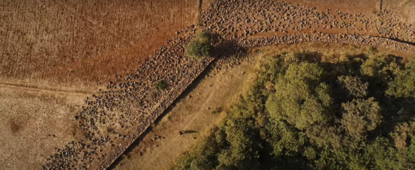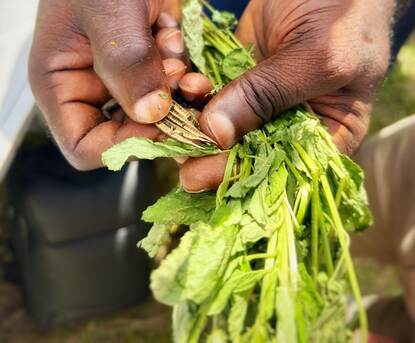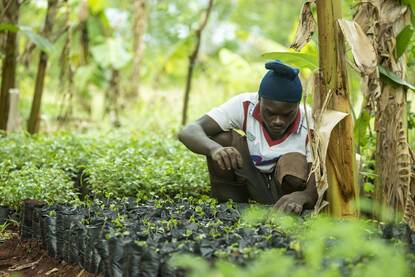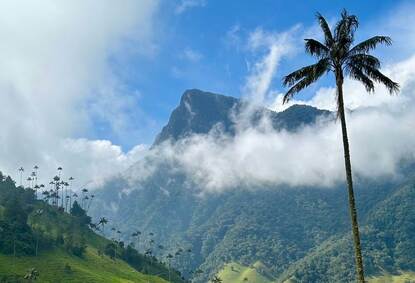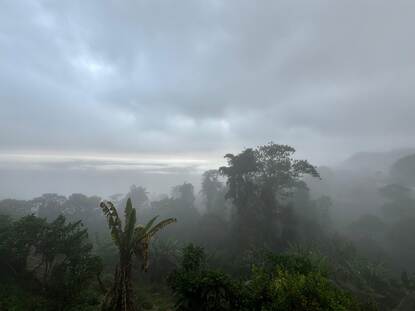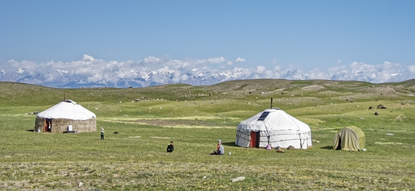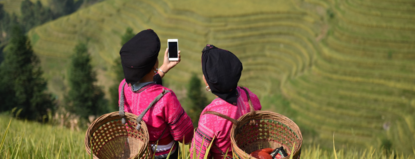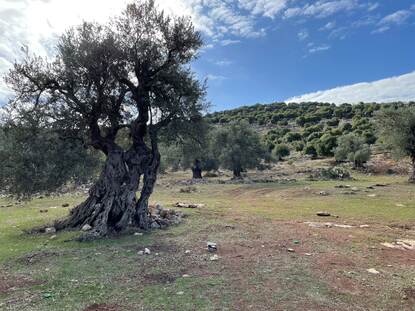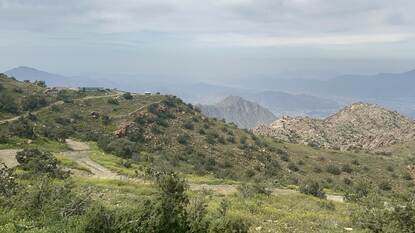Foto Forests are managed by Turkish Ministry
Türkiye’s biodiversity is under threat. Almost 1,000 endemic plant species are in danger of becoming extinct, and endemic mammals, reptiles and amphibians are suffering too. With extensive conservation programs, Türkiye’s Government is doing its utmost to battle biodiversity loss. But there is still much to be gained, for example, when it comes to cooperation with stakeholders and biodiversity programs with countries such as the Netherlands.
Türkiye is a key country for global biodiversity conservation because of its geographical location at the junction of three biodiversity zones and Anatolia’s complex topography and geomorphology. The global map of biodiversity hotspots gives the best insight on Türkiye’s global importance for conservation. Three out of the 34 hotspots meet in Türkiye: Caucasus, the Mediterranean and the Irano-Anatolian.
Unfortunately, Türkiye faces threats from 872 different invasive species that have intruded over the past decades owing to the opening of the Suez Canal, the increased discharge of ballast waters from ships in transit and the impact of climate change. In addition, water policies, mining, development for tourism and urbanization on the Aegean and Mediterranean coasts have resulted in loss of terrestrial and marine biodiversity in many areas.
Also, agriculture and certain agricultural practices have led to a decline in biodiversity of plants and insects. The liberal use of fertilizer and plant protection products, for example, harms the diversity of plants and insects directly and affects the natural environment negatively. A similar case can be made for agricultural water use and a decline in soil quality and soil erosion.
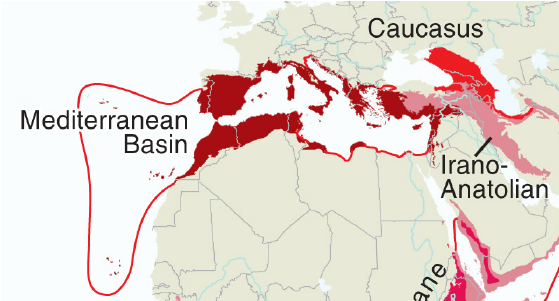
Endemic plants and animals under threat
With nearly 10,000 species of vascular plants and ferns, Türkiye has the richest flora of any country in the temperate zone, and 34% of these species only occur in Türkiye, which means they are endemic to Türkiye. However, nearly 1,000 of these endemic plant species are in danger of becoming extinct and are classified as Vulnerable (VU), Endangered (EN) or Critically Endangered (CR), according to IUCN Red List of Threatened Species. Most of these are confined to grassland and Mediterranean ecosystems.
The number of endemic animal species in Türkiye is not as high as plants. Yet, current studies show that several endemic mammals, reptiles and amphibians are threatened. Lycian salamanders (Lyciasalamandra sp.), frog species confined to the Taurus range, and the Taurus ground squirrel (Spermophilus taurensis) are examples of such rare species. The recent discoveries of two large mammals in Türkiye, the globally threatened Mountain gazelle (Gazella gazella) and the regionally threatened Anatolian Leopard (Panthera pardus tulliana), are key indications of how unexplored Türkiye’s biodiversity is.
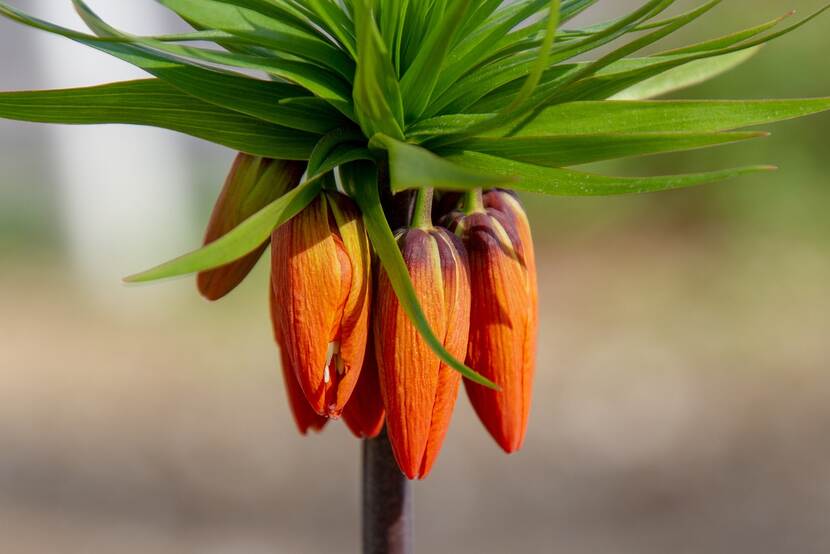
Government policies on biodiversity
Since the 1960s, the conservation of plant diversity has become the subject of extensive government policymaking. The conservation programs in Türkiye mostly target forests, herbaceous and woody relatives of crop plants and pasture species. For example, the Regulation Concerning Collection and Utilization and Preservation of Plant Genetic Resources was issued in 1992 to regulate the principles of plant diversity conservation and to organize the responsibilities, policies and activities on conservation and utilization of plant diversity.
The National Plan for in situ Conservation of Genetic Diversity, published in 1998, covers all actions in a systematic manner to protect in situ the plant genetic diversity in their natural habitat and in their agro-ecosystems. This plan incorporates several agricultural policies and sets relevant policy objectives, specimen priorities protection, management and public awareness activities.
The regulation and the national plan are incorporated and integrated in the 'National Strategy and Action Plan for Biodiversity in Turkey'. Various institutions, ministries and organizations have undertaken duties and responsibilities for conserving biological diversity.
‘Türkiye has the richest flora of any country in the temperate zone, with a level of endemism of almost 34%’
The protection of forests
The protection of forests falls under Turkish laws and regulations since the ownership and the rights to forest resources belong to the state. But the current regulations for sustainable use and conservation of wild, economic and aromatic plant species are not sufficient due to the lack of control. Also, penal sanctions do not have the desired effect. Nevertheless, various programs with different purposes and varying legal status have been established, for example concerning national parks, nature conversation areas, nature parks, natural monuments, seed stands, gene conservation forests and gene management zones. These are managed by institutions within the Turkish Ministry of Agriculture and Forestry.
Convention on Biological Diversity
Türkiye became a party to the Convention on Biological Diversity (UNCBD) in 1996. Since 2004, it has been party to the Cartagena Protocol on Biosafety to the Convention on Biological Diversity. The Nagoya Protocol on access and benefit sharing, on the other hand, has not been signed by Türkiye.
The current National Biodiversity Action Plan was created as a national policy covering a period of 10 years between 2018 and 2028. The overall goal of this policy is to ensure the conservation and sustainable use of Türkiye's biological resources, and fair and equal share of benefits arising from the use of genetic sources.
National and international biodiversity activities are carried out by the Department of Biodiversity within the General Directorate of Nature Conservation and National Parks under the Ministry of Agriculture and Forestry of Republic of Türkiye.

Cooperation with stakeholders
Since the state is the owner of much of the land, all forests in the country, protection and management of biodiversity and all natural areas in general fall under the responsibility of the state. Although the Ministry of Agriculture and Forestry appears to be the main responsible party, many state institutions have responsibilities in certain areas. In recent years, the increase in public awareness on environmental issues has pushed the government to reduce bureaucracy within state mechanisms. Also, it has ensured that decisions and sanctions are implemented more quickly and effectively.
In addition, successful projects, for example addressing soil erosion, deforestation, wetland protection, implemented by different NGOs active in protection of biodiversity, show that they are important stakeholders in this regard. Although the cooperation between the state, NGOs and universities continues to increase, it is not at the desired level yet and can be improved. In the past years, projects carried out with EU funds and EU Twinning projects on capacity building have made significant contributions to the development of the required coordination between stakeholders and topics.
Disseminating Dutch sustainable agricultural practices
The Netherlands Agricultural Network (LAN) team at the Dutch Embassy in Ankara raises awareness and promotes and facilitates the uptake and implementation of sustainable agriculture technologies, innovation and knowledge.
They do so, first, by enhancing bilateral contacts with the Turkish Ministry of Agriculture and Forestry. For example, the bi-annual NL-TR agriculture working group is used to discuss a wide range of topics. In addition, the LAN team has frequent contacts with counterparts at the Turkish Ministry of Agriculture and Forestry to discuss policy developments.
Second, they aim to disseminate sustainable agricultural practices to a wider audience through seminars, trade missions, visits, studies and discussions. Examples include the Netherlands Enterprise Agency (RVO) project on sustainable production of soft fruit. Another example is innovation and technology in greenhouses.
Although the LAN team does not have bilateral biodiversity programs, they aim to incorporate biodiversity in their current and future work by addressing issues such as water quality, greenhouse waste management, soil quality, fertilizer and pesticide use and climate adaptation during our activities and events. Current activities include the sustainable development of the soft fruit sector through the PIB project, sustainable and innovative greenhouse technologies during the Growtech Exhibition and an event focusing on circular agriculture and horticulture, including soil and water quality, agricultural waste management and more sustainable crop protection.

More information
Would you like to know more about biodiversity conservation in Türkiye? You can visit the country page of Türkiye at the website Agroberichtenbuitenland.nl of the Dutch Ministry of Agriculture, Fisheries, Food Security and Nature. You can also send an email to the LAN team at the Dutch Embassy in Ankara: ank-lvvn@minbuza.nl.

